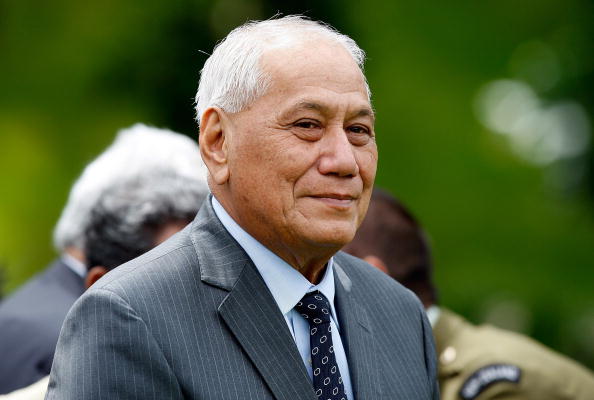
The Head of State of Samoa, Tui Atua Tupua Tamasese Ta’isi Efi, has called for a "meaningful incorporation" of Māori culture into New Zealand law.
“We can never have laws if they don’t find a way into the minds and hearts of the people,” he said.
Tupua called strongly for the Māori culture to find its way into the laws of New Zealand.
“Place that Māori soul into the law of New Zealand,” he said.
“So when it speaks, it speaks not only to punish, but to guide.”
Tupua was a keynote speaker at the symposium held in memory of the late Emeritus Professor James Ritchie, who died in 2009.
Cultural richness
Tupua was responding to a question about the younger generation and an attempt to keep the richness of Māori culture intact in a modern and bicultural context.
He gave a personal example of speaking to youth in detention centres, who were unresponsive when spoken to in English, but reduced to tears when he had addressed them in the Samoan language.
“The only way we can survive is to ensure that our beliefs, our vision, our values and the verities that sustain them would be able to gain entry into the academic conversation,” he said.
“Not only entry into universities, but into the equity of law.
“These are the things that are going to form our future generations.”
Tupua, now an academic and serving as Chancellor of the University of the South Pacific, admitted he was not always so diligent in his own youth.
“I didn’t do so well at university as I liked to party,” he said.
“However my wife used to teach at university, so I like to say that I got married in order to give myself a free education.”
Wisdom and change
Tupua also spoke of the need to gain wisdom to discern what to keep and what to change in a culture.
In regard to shifting boundaries in society, he said individuals in a society needed to “know what is wisdom, know what to change, when, and what not to change".
“We can’t think that something is unchangeable because we got it from our forebears. That is a mistake,” he said.
“Truth, love, justice remains, but other things change.
“As circumstances change, our perspectives change, and the rules or practices that once seemed set in stone, no longer seem right to be so.
“We then learn to relearn or unlearn what we learnt in order to ensure that what we do, say, think and feel in future is compatible with the findings of our current search for God.”
He used the Samoan term tofa fetala'i – wisdom that understands change – as well as tofa saili – wisdom with humility. He gave the experience of Professor Ritchie as an example of this.
“He had the foresight and humility to acknowledge that he was wrong in his earlier stances on Māori assimilation,” he said.
His Highness praised the work of the late Professor Ritchie, saying that “I fell in love with the people he wrote about, who impacted profoundly on his life.”
“And I fell in love with his story on their culture and cultural values.”
Common pathways
In the "search for the soul", or the Samoan mauli and the Māori mauri, Tupua praised Ritchie’s search for “an Aotearoa New Zealand that has true bicultural connections, common pathways and understandings.”
“The search for the soul is, if I may say, the search first for the coming together of the two souls of the founding partners of the Treaty of Waitangi: the soul of Māori and of Pakeha.”
He added later that the search for soul was also a search “for God’s wisdom, for His justice and truth".
“In this our search is always ongoing. The more we learn about ourselves, the more we learn about how much we don’t know,” he said.
That attitude was echoed in the vote of thanks by Labour MP Nanaia Mahuta, MP for Hauraki-Waikato and daughter of Sir Robert Mahuta.
Mahuta said there were always challenges when cultures clashed and Professor Ritchie’s manuscript was entitled Becoming Bicultural as a statement that described a continuous process and constant struggle.
When later asked about maintaining integrity in the Māori culture while welcoming Pakeha structures, Tupua was cautious not to overstep the boundary.
“I need to be careful here,” he said.
Love respects boundaries and is not intrusive, said the Head of State, and “the only people who can answer that are the people of New Zealand.”
“I can send you my love, but I can’t share your destiny.”
The memorial symposium to celebrate the life and work on Emeritus Professor James Ritchie (1929-2009) was held at the University of Waikato last night. Other keynote speakers were Professor Pat Dudgeon, head of the Centre for Aboriginal Studies at Curtin University, and Dr Neville Robertson, a community psychologist and chair of the School of Psychology at the University of Waikato.



